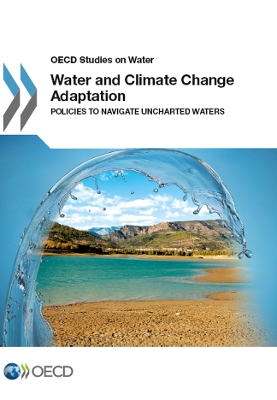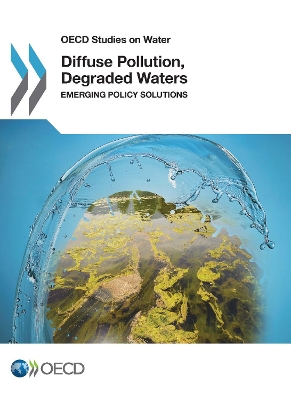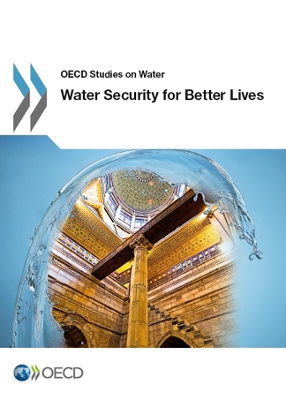OECD Report
24 total works
The main impacts on water availability and use are due to human activity. Economic expansion and rising living standards will continue to drive the demand for water in the years to come. Over 90% of the projected population growth by 2050 (3 billion more people) will be in developing countries, often in regions which already are water scarce. OECD Insights: Water looks at how issues ranging from infrastructure financing to climate change influence water resources, as well as the importance of water in activities ranging from energy production to agriculture.
Water and Climate Change Adaptation
by OECD: Organisation for Economic Co-Operation and Development
Published 31 January 2014
This publication sets out the challenge for freshwater in a changing climate and provides policy guidance on how to navigate this new "waterscape". It examines the range and complexity of possible changes in the water cycle and the challenges of making practical, on-site adaptation decisions for water. It offers policymakers a risk-based framework and guidance to "know", "cap" and "manage" water risks in order to provide flexibility and improve decisions despite the lack of reliable predictions. It draws insights from a stock take of current policy efforts to adapt water systems across all 34 member countries and the European Union, including water-related aspects of National Adaptation Plans and Strategies, specific policy measures, and financing programmes. Finally, the report examines the use of economic instruments to promote adaptation (e.g. insurance schemes, water markets and banks, water pricing), incentives for ‘green’ infrastructure and ecosystem-based approaches, and financing issues.
After decades of regulation and investment to reduce point source water pollution, OECD countries still face water quality challenges (e.g. eutrophication) from diffuse agricultural and urban sources of pollution, that is disperse pollution from surface runoff, soil filtration and atmospheric deposition. The relative lack of progress reflects the complexities of controlling multiple pollutants from multiple sources, their high spatial and temporal variability, associated transactions costs, and limited political acceptability of regulatory measures. This report outlines the water quality challenges facing OECD countries today, presents a range of policy instruments and innovative case studies of diffuse pollution control, and concludes with an integrated policy framework to tackle diffuse water pollution. An optimal approach will likely entail a mix of policy interventions reflecting the basic OECD principles of water quality management - pollution prevention, treatment at source, the polluter pays and beneficiary pays principles, equity, and policy coherence.
Water Security for Better Lives
by OECD: Organisation for Economic Co-Operation and Development
Published 31 January 2014
This publication examines the critical issues surrounding water security (water shortage, water excess, inadequate water quality, the resilience of freshwater systems), providing a rationale for a risk-based approach and the management of trade-offs between water and other (sectoral and environmental) policies.
The report sets out a three-step process to "know", "target" and "manage" water risks: (1) appraising the risks, (2) judging the tolerability and acceptability of risks and weighing risk-risk trade-offs, and (3) calibrating appropriate responses.
The publication provides policy analysis and guidance on the use of market-based instruments and the complex links between water security and other policy objectives, such as food security, energy security, climate mitigation and biodiversity protection.
The report sets out a three-step process to "know", "target" and "manage" water risks: (1) appraising the risks, (2) judging the tolerability and acceptability of risks and weighing risk-risk trade-offs, and (3) calibrating appropriate responses.
The publication provides policy analysis and guidance on the use of market-based instruments and the complex links between water security and other policy objectives, such as food security, energy security, climate mitigation and biodiversity protection.



